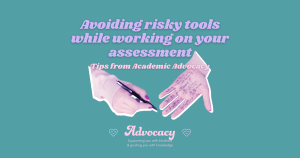Welcome Glassies, to your guide to life. This series takes a deep dive into all your pressing need-to-knows (how to contact your local MP, how to make the perfect cocktail, and how to get over your ex, goddamnit) and offers comprehensive guides so that you can live your Best Glassie Life™.
This edition is A Glassie’s Guide to Being a Student Politician.

I am not a student politician.
And I never want to be a student politician, much to the disappointment of some friends and the relief of my long-suffering parents, who have been receiving almost nightly briefings on the happenings in QUT student politics during my time at the Guild.
On the eve of my final semester as Glass Editor-in-Chief, though, I feel like I’ve seen, known, and reported on enough student politicians to have a take on what you need to know to be a successful one. This Guide is a mish-mash of my own reflections, and thoughts from a number of esteemed (and anonymous) past Guild Presidents and Execs with wisdom to share.
First of all – why should I be a student politician?
When I use the phrase “student politician” in this Guide, I’m referring a member of the Student Representative Council (SRC) that sits within the QUT Student Guild. The terms SRC member/student politician/Executive or Exec are used interchangeably.
SRC members are current students who are paid and elected into their positions in the Guild in October each year. They essentially take on their role as a student politician as a part time job while studying. Hours per roles differ, but it’s usually pretty manageable in addition to studies.
Student unionism is no longer in its golden era (that’s another article), but it is more important than ever. Universities these days are mega corporations that wield an uneasy amount of control over the quality of higher education Australians receive. Student unionism advocates for students and works to ensure that we all get the education and kind of life at university that we deserve.
Another pro, in the words of a former Exec: “Good resume padding.”
I tend to agree, but not least of all because it looks impressive – I think the skills I’ve developed in being able to think quickly on my feet, manage various (and sometimes complicated) working relationships, and apply the creative writing and legal skills I’ve studied in class have been unparalleled.
Know what you’re getting into and what you can do.
Student unionism is a global movement, with a rich history around Australia and at QUT. It’s well worth doing a Google, reading Glass articles, and looking out for information published by the Guild itself to get a feel for what you’re getting yourself into.
I also find looking at other student unions around Australia incredibly insightful. In particular, the University of Sydney’s long-running student publication Honi Soit does amazing Instagram coverage of their monthly SRC meetings (which we have tried to emulate at Glass) that give a great insight into the work of student politicians.
One former President of the Guild told me: “Student politics is more complex internally than it may seem. There’s internal politicking and bureaucracy within university structures that make it difficult to enact change. Go in with a few issues you can really focus on, rather than wanting to change the world. You simply don’t have the time to change everything.”
“Also – it is a large commitment. University landscapes change every day, and if you’re in higher up positions in student unions, that may mean having some late nights responding to something that has come up.”
It’s no secret that casual vacancies (someone vacating their role before their term ends) are an issue at the Guild. It’s hard yakka and it’s sometimes emotionally fraught, awkward, anxiety-inducing work. I’m not going to lie to you. But I can also guarantee you’ll never find a job like it again and it might be some of the best fun you have at uni.
Know what you want to do in office and have convictions. Please.
You’re going to need a clear idea of what you want to do for students before you get elected, and it’s important to maintain vision of that while you’re in office as well.
This might be inspired by a political movement, or it might come from your own ideas about what student unionism should be and what QUT students need.
Knowing what students want and need from you is about “meeting them where they’re at”, according to my panel of experts. Talk to your peers – from all over the university and lots of different walks of life – and find out what their university lives are like.
On an interpersonal note: “Be a decent person. Student politics is stressful, and there’s always interpersonal issues that arise in any workplace. At the end of the day, you and your fellow students are working towards a common goal; you’ll get their faster and enjoy your time more with kindness and empathy.”
Follow the rules and set up accountability mechanisms for yourself.
The Guild has a number of governing documents, such as its Constitution and Regulations, that set out how student politicians will conduct themselves in their elected roles.
Lots of people say these documents are too long and confusing. I might be jaded from working in law and reading constitutions that are actually very long, but either way – don’t believe them. The documents are really not that long, and the language used is usually quite clear. There will be some provisions that are confusing at first, but give it another read or phone a friend.
As an example of how to follow the governing docs: they provide that you have to be an enrolled student to be an SRC member. Don’t be that person who lies about their enrolment just to keep their job at the Guild (yes, this has happened.) Which brings me to more sage former Presidential advice, on a related note: “You’re already on campus, GO TO YOUR CLASSES.”
In terms of accountability mechanisms for yourself and the teams you work in, a former president has this to say: “Different roles have different goals and responsibilities, make sure everyone is documenting their work, and your teams are having regular check ins to make sure everyone is able to accomplish what they set out to do, and you can support each other (and call each other out) when needed.”
Connect with the broader QUT community while you’re in office.
“Academics are your friends!” a former President said.
“They’re working their butts off every day against all odds to give students their educations. Academic working conditions are student learning conditions, joining forces is incredibly rewarding and you will make connections you wouldn’t normally.”
I seem to have lots of conversations with people where we talk about “QUT” the institution and seem to forget that it’s also a community made up of so many groups of academics, staff, students, alumni, and other stakeholders. It’s good to remember that there are so many groups and individuals invested in the success of student unionism at QUT and make sure you connect and engage with those people.
Respect student media.
While some student politicians I’ve come across might not like to hear this, student media at QUT has been around as long as the Guild has existed (since 1966!) and is not going anywhere. The QUT Student Guild’s Constitution at C47 makes it clear that the Guild must maintain an independent student publication.
A productive relationship between student media and student politicians is possible, but the nature of the relationship itself must be respected. I will not remove something you said in an SRC meeting from an article just because you asked. I will not write a glowing report of what you’ve achieved in your term just because you asked.
What we will do is our very best to report fairly and accurately on the state of our union. You might not always like what we publish, and that’s ok. If you prefer state-run media, you can say that. It might not win you any votes at the next election though.
Who wants to be a student politician?
(The slightly less well-paid version of Who Wants To Be a Millionaire?)*
If you want to be a student politician at QUT, you will need to run as a candidate in the next Guild election in October. You can also take your chances that someone will resign and go for casual vacancies if they become available during the year.
Candidates can nominate independently or as a “ticket” – which is where you organise a group of people to run a campaign together to win SRC membership seats. Look out on qutglass.com for a guide to running a Guild election ticket soon!
All information about Guild elections and casual vacancies is published on the Guild Noticeboard. We’d also recommend getting in touch with current and past SRC members if you can and picking their brains.
Happy stupol hacking, Glassies!
*This is a JOKE. If you are interested, SRC members/student politicians and Glass Editors at the QUT Student Guild are paid minimum wage.







